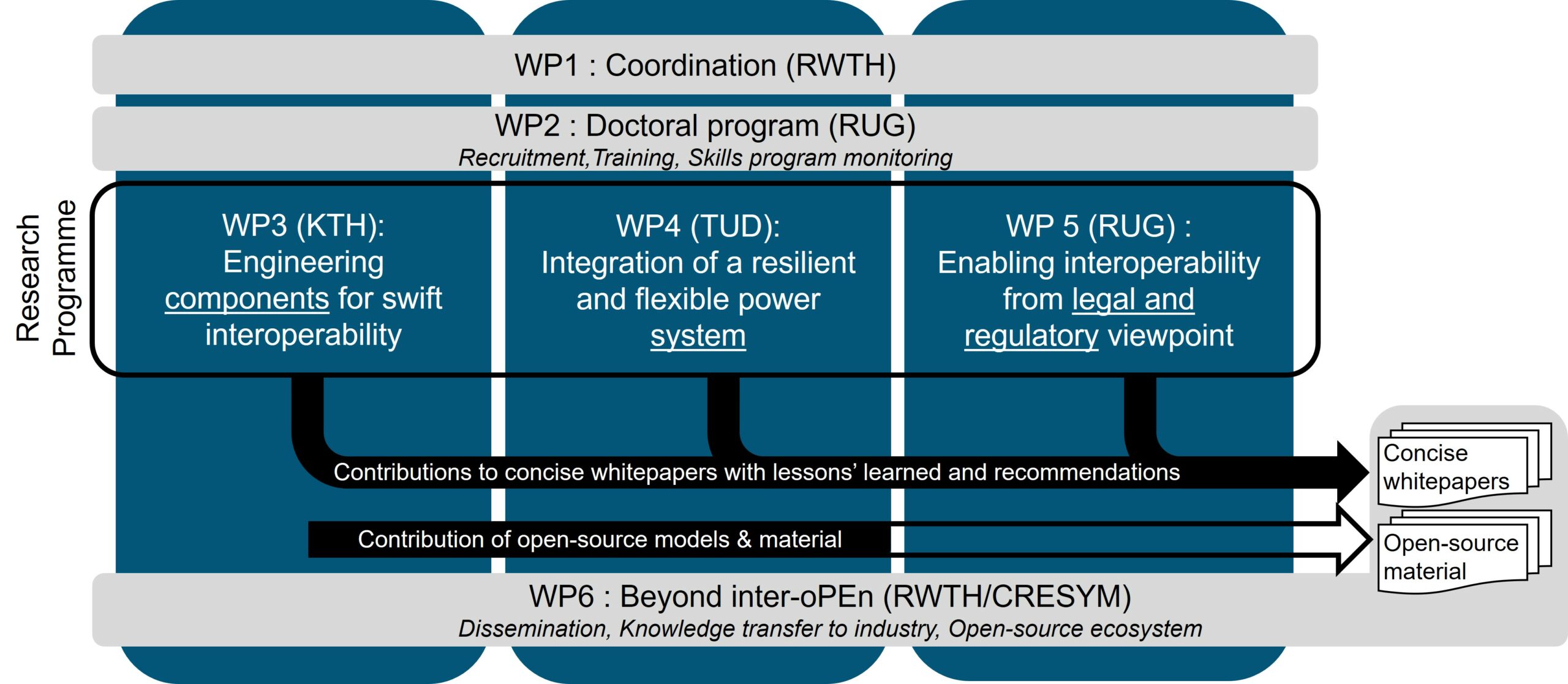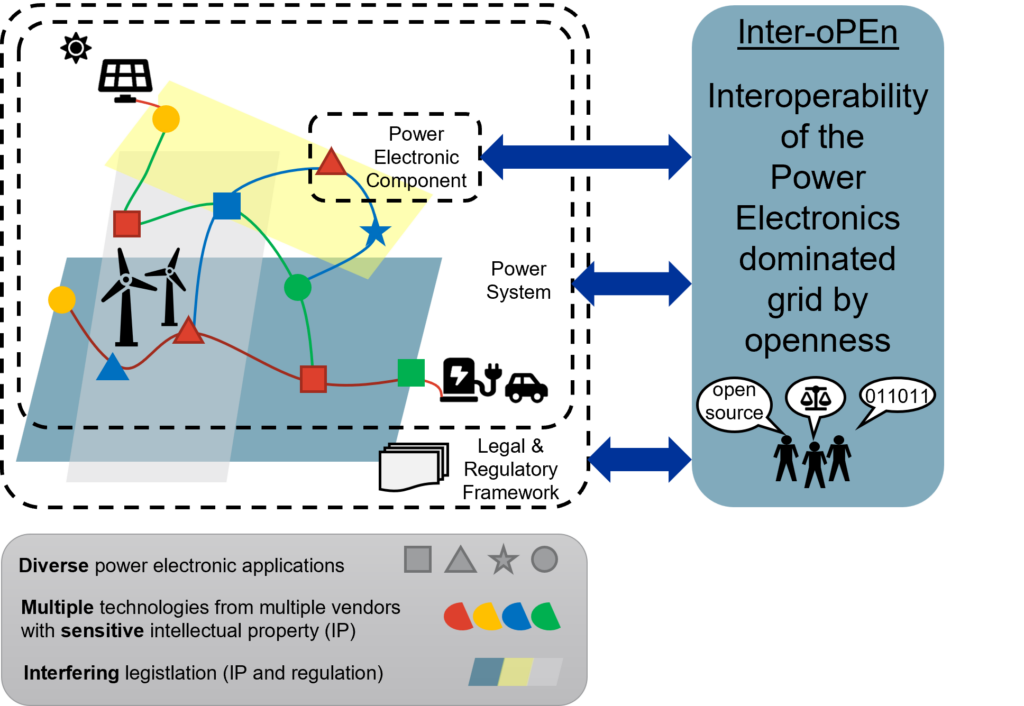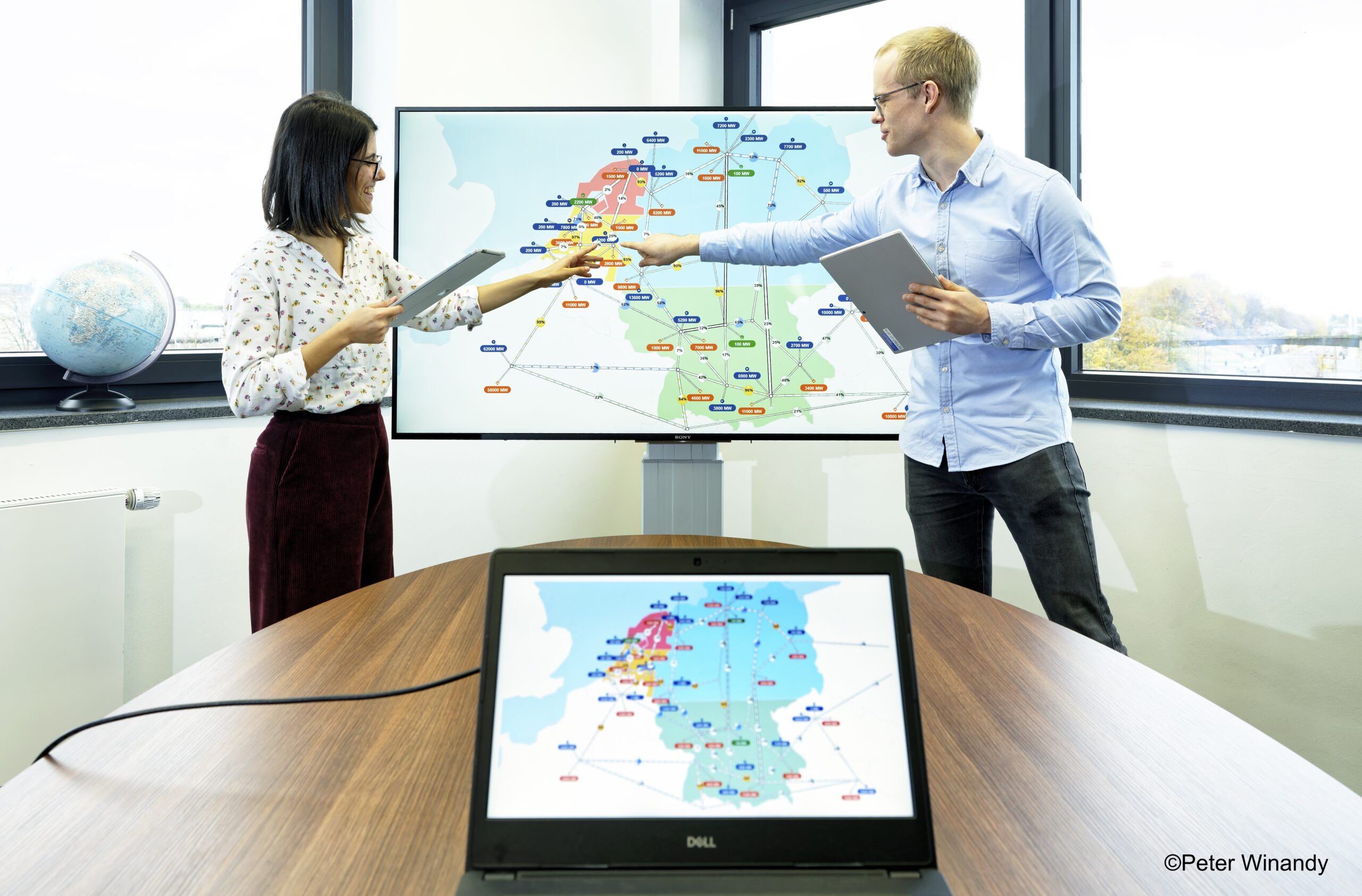In a nutshell
Inter-oPEn is a unique doctoral programme that integrates multi-sectorial knowledge by gathering electrical engineering and legal researchers.
The doctoral fellows in Inter-oPEn conduct research on the safe and reliable operation of modern power systems dominated by power electronics (PE) and gain additional expertise in academic and industrial secondments.
Openness will be a pivotal factor in their research, tackling various fundamental aspects of modern PE-based electrical systems, such as control, protection, interoperability, governance, and intellectual property challenges.
More about the project organisation.


Background
To achieve decarbonation goals, the power grid is switching from passive to active components, relying on power electronics and digital controls. Every solar or wind harvesting units, electric-vehicle charging facilities and important grid infrastructure such as high-voltage direct-current (HVDC) power transmission, all rely on power electronics.
The interoperability of various neighbouring PE devices from diverse manufacturers, each also secretive about their technology and methods, is key to avoiding adverse interactions and enabling safe and reliable future power grids.
Interoperability barriers must be addressed at the component level (modelling, effective & secured interfaces), system level (technical interactions, communication protocols), and regulatory level (common standards for manufacturers, rights & obligations of users).
Goals
Inter-oPEn’s main objective is educating and training highly qualified researchers, so that they can jointly contribute toward the achievement of common goal: enabling interoperability in PE-dominated systems.
The road to this goal involves investigating several new means and methodologies to ensure PE assets interoperability across the fellows’ doctoral theses.


Participants
Inter-oPEn gathers 8 academic institutions and 13 associated partners.
The team consists of 10 doctoral fellows, their supervising researchers and supporting staff members.
Management
Inter-oPEn’s execution relies, of course, mostly on the scientific work of the doctoral fellows.
The scientific supervision is the duty of the Supervisory board.
All academic and associated partners are represented in the advisory Stakeholders’ board. Each associated partner is in charge of a secondment period for a doctoral fellow.
RWTH Aachen coordinates the daily management and supervision, with the support of CRESYM for the dissemination and especially the long-term utilisation of the results by industry and society.

